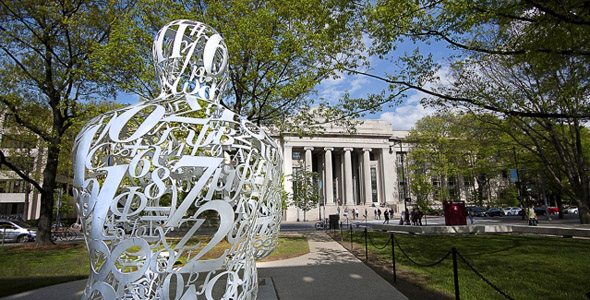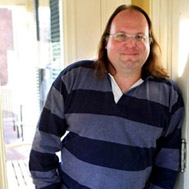SOCIAL INNOVATION
How can we design sociotechnical approaches for solving the social, economic, and political dimensions of global issues?

Jaume Plensa's "Alchemist" sits across Massachusetts Avenue facing MIT's main entrance. A human form comprised of letters, numbers, and symbols, this work has been interpreted to represent the need to internalize interdisciplinary knowledge to address today's complex challenges. Photo by John Parillo, for MIT News.
Ethan Zuckerman, Director of the Center for Civic Media at MIT (a joint project of Comparative Media Studies and the Media Lab) considers a sociotechnical design challenge:
"I want to consider a problem that’s been on my mind a great deal since joining the MIT Media Lab five years ago: how do we help smart, well-meaning people address social problems in ways that make the world better, not worse?
In other words, is it possible to get beyond both a naïve belief that the latest technology will solve social problems and a reaction that rubbishes any attempt to offer novel technical solutions as inappropriate, insensitive and misguided? Can we find a synthesis in which technologists look at their work critically and work closely with the people they’re trying to help in order to build sociotechnical systems that address hard problems?"
Read the full commentary at The Atlantic

Related
Making a Better World: Social Innovation
Profile: Ken Oye and the art of sociotechnical problem-solving